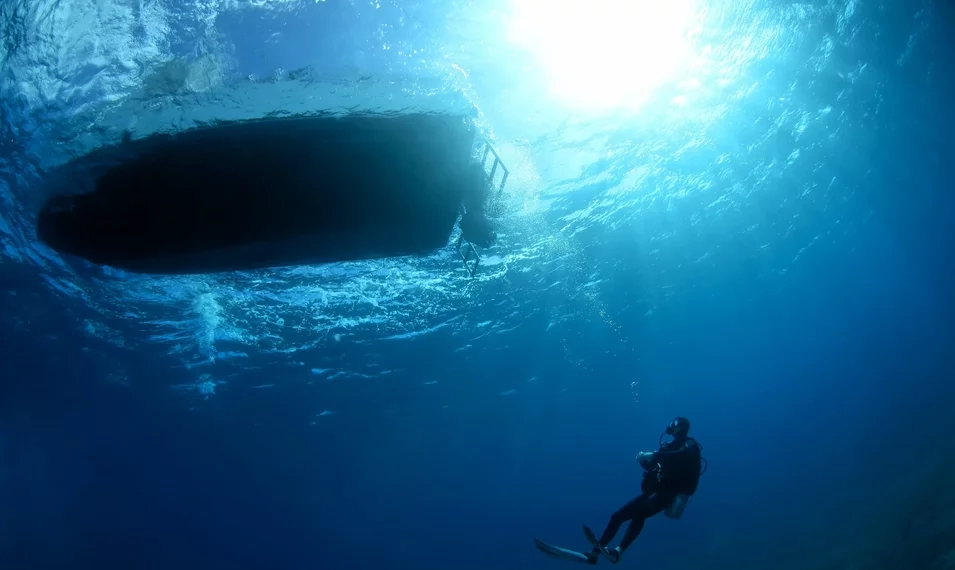
United Kingdom, Oct 18, 2023
At a glance
Customer: National Oceanography Centre
Challenge: Research vessels operating in remote environments face connectivity limitations due to prolonged periods without reliable network access. The security of research data, scientific systems, and business systems face l risks posed by malicious attacks, ransomware and data breaches. The vessel's limited space and substantial metal structure present challenges to the implementation of robust wireless infrastructure.
Solution: Developing and deploying a secure, network infrastructure solution across two research vessels, while adhering to atypical time and architectural limitations, to provide the personnel on board the vessels with comparable levels of connectivity and data protection as those typically expected in the modern world.
Outcome:
- Successful deployment of a robust wireless infrastructure solution, ensuring high-quality connectivity for onboard personnel, while efficiently addressing challenges encountered during the pre-staging phase.
- An integrated solution that facilitates the seamless wireless transfer of data from the vessel upon its arrival at port.
- A robust and secure IT infrastructure solution to safeguard data, science and business systems from potential cyber threats.
- Driving innovation within UK research institutions and supporting impactful research focused on the Earth's oceans.
Background
The National Oceanography Centre (NOC) is at the forefront of research in large-scale oceanography and ocean measurement technology innovation. Based in the UK, the NOC is one of the world’s top oceanographic institutions employing around 650 staff. Through working with government and business, they turn great science and technology into advice and applications to enable the UK to harness the full power and diversity of its ocean science talent. NOC supports scientists in universities and research institutes with facilities, research infrastructure and irreplaceable data assets.
The NOC is an independent self-governing organisation, funded by UK Research and Innovation to work on National Capability programmes, and manages on its behalf, the National Marine Equipment Pool – Europe’s largest fleet of autonomous and robotic vehicles, and two state-of-the-art research ships RRS Discovery and RRS James Cook.
The organisation fosters global scientific collaboration by representing the United Kingdom on an international scale. This includes leading the UK delegation of the Intergovernmental Oceanographic Commission of UNESCO, actively participating in the European Marine Board, and establishing partnerships with esteemed research institutions and organizations worldwide.
Challenge
The National Oceanography Centre had planned to refurbish RRS Discovery and RRS James Cook and identified an opportunity to install a robust and secure IT infrastructure solution onboard both vessels. Connectivity is an essential aspect of our modern world, and this holds true even aboard a research vessel amidst the vast oceanic expanse. Given the rarity of such refits, this presented a highly unique opportunity to establish modern levels of connectivity and state-of-the-art security onboard each vessel.
The primary objective of the project was to provide an up-to-date, high speed, and secure network and IT infrastructure. The foremost emphasis was placed on security, especially in light of the prevalent challenges posed by malicious attacks, ransomware, and data breaches. Considering that the vessels continuously amass substantial volumes of research data during each voyage, which serves as the foundation for scientists’ research papers and academic degrees, the pivotal task was to efficiently store, secure, and provide seamless accessibility to this data across the vessels’ various devices.
The two vessels undertake prolonged research expeditions globally, resulting in significant challenges to any IT infrastructure installed onboard. The solution Logicalis was tasked with was installing required the installation of both indoor and outdoor elements, including access points mounted on masts. Upon embarking on their journey, the outdoor components would be subjected to extreme weather conditions from Equatorial to Arctic/Antarctic. Therefore, Logicalis was required to design a solution that could withstand the harshest of weather conditions.
The RRS Discovery and RRS James Cook pose significant architectural obstacles to the installation of IT infrastructure. Despite their considerable size, the vessels' limited space is primarily allocated to research equipment and the storage of provisions necessary for sustained periods at sea.
Consequently, the implementation of any IT solution had to be executed within highly constrained physical parameters and be appropriately sized to fit into the available space. Additionally, the metallic composition of the research vessels poses a significant challenge to the design of any wireless solution. Substantial metal structures often interfere with wireless IT systems, leading to signal interferences and disruptions.
Lastly, the refit completion date was fixed, as RRS Discovery and RRS James Cook were scheduled to depart on a specific date. Consequently, the updating of the onboard network had to be started and completed within a narrow window of opportunity.
Solutions
Working as a collaborative team, Logicalis supported the NOC in developing a new Network and IT strategy for the RRS Discovery and the RRS James Cook. With a steadfast commitment to serving the customer's needs, Logicalis proactively sought innovative solutions, harnessing technology to navigate challenges and offer the best wireless, network solution.
Given the time constraints faced by the Logicalis project team during the vessel refits, a pre-staging process became imperative. Over a span of three months, Logicalis meticulously pre-staged all wireless networking equipment at the NOC building in Southampton. The project team tested and ensured the functionality of every component whilst overcoming any challenges during the testing phase. Once the customer approved the solution, the equipment was swiftly transferred onto the ship, which subsequently embarked on its journey to Scotland. In Scotland, an expert team of Logicalis engineers undertook the physical installation of the network, ensuring seamless integration aboard the vessel.
In every project undertaken by Logicalis, the testing phase inevitably presents its own set of challenges, demanding timely and effective resolutions. However, this project added a distinct dimension of urgency, as all challenges had to be successfully addressed and resolved within an immovable deadline. The ability to tackle these technical hurdles within the allotted period underscores the value of having a team of experienced and highly skilled engineer's adept at swiftly and efficiently overcoming obstacles.
The timeline for delivering the solution was initially constrained by manufacturer supply times. The process began with the design and sign-off, which took approximately 12 weeks, followed by the pre-build, equipment staging, and off-board testing on both ships, spanning 14 weeks. The installation and testing on each vessel required 2 weeks, while the final knowledge transfer preparation and sessions for the operations team took an additional 2 weeks. Overall, the entire elapsed time from September 2022 to July 2023 accounted for 11 months, primarily due to equipment dependencies. The physical progress, from kick-off to operational handover, extended over 32 weeks.
Outcome
The partnership successfully delivered on the deployment of an advanced and all-encompassing wireless infrastructure solution that ensures improved levels of security to keep research data safe and in the right hands. As a result of the success of this partnership, the NOC has entered into a 12-month managed service agreement with Logicalis.
In adherence to Logicalis’ proposed strategy, the project executed its outlined objectives:
- High speed and highly available server and storage solution with up to four times more capacity than the ships previous solution in a smaller footprint.
- High-speed data backup and recovery.
- Multi-gigabit network backbone.
- Network segmentation and software defined access control.
- Centralised user authentication and role-based access.
- Wired and wireless network access throughout the ships.
- Software Defined Wide Area Network connectivity through satellite, 4G and point-to-point networks.
- High speed ship-to-shore connectivity in the home port.
- Guest Wi-Fi Internet access.
The individuals onboard will now experience enhanced Wi-Fi coverage encompassing the entire vessel, extending even to accommodation areas. From the IT administrators’ standpoint, the primary advantage lies in the significantly enhanced cyber security on board, along with an integrated solution that facilitates seamless wireless connectivity between the vessel and the NOC headquarters upon arrival at port.
Resilient and robust IT systems are fundamental to supporting the work and research we do at sea. The Logicalis team worked tirelessly to deliver the project against a complex set of requirements and the backdrop of global supply chain issues. We are pleased that their solution significantly increases the security of the onboard IT infrastructure, decreasing risks to research data, scientific systems and marine business systems, whilst at the same time enhancing the user experience with WiFi throughout the ship and high-speed connectivity when alongside in Southampton.
says Juan Ward, Head of the Ships Scientific System team, National Oceanography Centre.
Download the pdf version of the National Oceanography Centre case study










